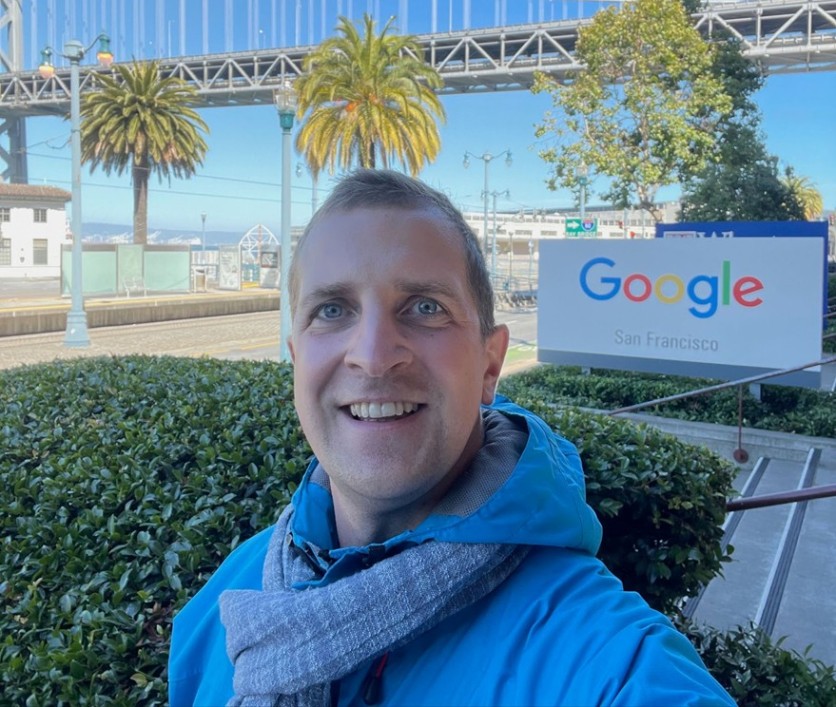
In the dynamic field of software engineering, professionals like Alexey Nevsky play a key role in shaping innovative solutions.
Alexey Nevsky is an AWS Certified Solutions Architect and a highly skilled tech professional with over 12 years of experience in software development and artificial intelligence. He's an expert in building software, designing system architectures, and working with cloud-based technologies, earning him recognition as one of the top talents in the field.
Over the years, Alexey has held key roles at major companies like Adidas, Verizon, Glovo, Coca-Cola, Whirlpool, Stewart Title, SAP, and Yandex. He's also a regular at tech conferences and a mentor to many in the industry. On top of that, he's judged startup hackathons, sharing his expertise to help the next generation of innovators.
As the founder of Sqwadrix.AI, a research lab focused on intelligent agents, he offers a unique perspective on technological advancements and the future of AI.
Q: Alex, your career spans work with some of the largest and most innovative tech companies. Can you share a little about what drove you to pursue software engineering?
Alex Nevsky: From a young age, I was captivated by technology's potential to solve complex problems and improve lives. That is why I got into software engineering, as here, the opportunities for innovation are endless.
I was working with technology from behemoths like Google, Microsoft, SAP, and Amazon Web Services to lead the execution of critical projects for companies from the USA, Canada, Europe, and Asia.
What is more, since the beginning of my career, I've had the privilege of working for many fascinating companies across diverse industries, gaining invaluable experience and insights along the way. Over the years, I've been lucky to work with amazing teams on projects that challenge conventional thinking and deliver groundbreaking solutions for clients and users.
I led and oversaw software development projects at every stage and developed maintainable architecture systems that enabled clients that I've been working with to continue their growing operations more efficiently and without any system disruptions.
Q: You've worked with prominent global giants. What experiences stand out to you the most?
Alex Nevsky: For Verizon, the largest telecommunications company in the U.S., I developed a platform for digital signage that connected thousands of devices in real time. This involved real-time communication and synchronization between them, utilizing a diverse tech stack, managing enormous data volumes, and a distributed cloud-based system. In my role, I led the design of various software components, systems, and features. I also played a crucial part in team building and fostering innovation within the organization.
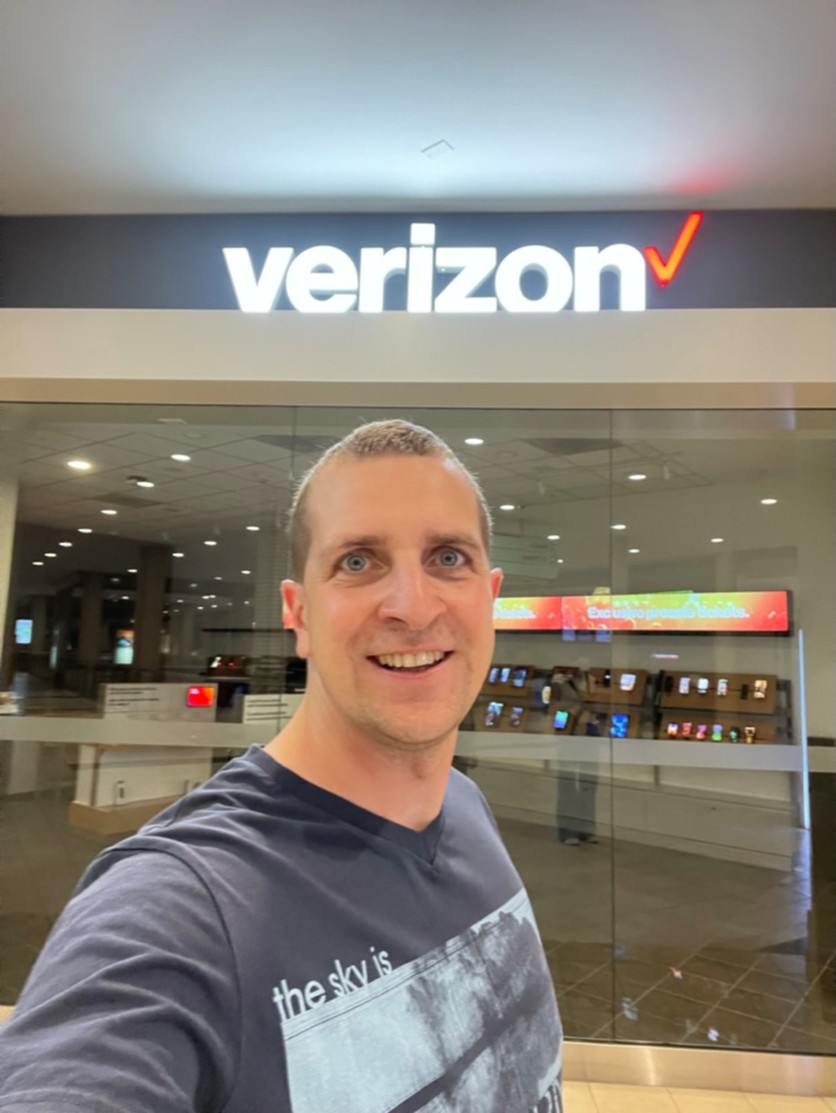
At Whirlpool, a major multinational manufacturer, I was responsible for overseeing the development and management of 100+ branded online stores globally while optimizing their Master Data Management system. These were transformative experiences that showcased how technology can drive efficiency and scalability. Notably, in this critical role, I revolutionized the entire data management system for Whirlpool Corporation by optimizing its integral database systems and redesigning the vital components of the underlying software; master data management by removing duplicates, standardizing data (mass maintaining), and incorporating rules to eliminate incorrect data from entering the system in order to create an authoritative source of master data. Collecting, aggregating, matching, consolidating, quality-assuring, persisting, and distributing such data throughout an organization to ensure consistency and control in the ongoing maintenance and application use of this information.
At Adidas, I was responsible for developing one of their earliest and unique social networks for athletes and wearable device users. This project was first announced as a pacer and smart watch on January 7 at the 2010 International Consumer Electronics Show. Adidas miCoach was the parent of many products, including a video game, a fitness app, a pacer, a smartwatch, and a performance center at the Ajax Youth Academy. The miCoach app is a free fitness app that provides real-time audible training and sports-specific training programs. It was available for iOS, Android, and Windows as a digital health and fitness platform. The app could track the user's exercise and act as a personal trainer. It also provided GPS tracking, though pace and speed were calculated guesses without GPS. The app worked similarly to Nike+. Later, I designed the architecture and migration plan for transitioning their community platform to Salesforce Cloud. This migration provided consumers with a more efficient platform where they could connect, share their achievements, and find solutions and answers to many of their questions.
For Coca-Cola, I developed one of the first mobile applications in my career. The app allowed users to read and watch brand-related news and videos, share them with friends, create unique Coca-Cola-branded designs with personalized names, and send them to each other. It was an international project (managed from London and the U.S. with a development team in Europe) that I thoroughly enjoyed working on.
Q: Indeed, very impactful projects and well-known companies. And what about the most ambitious and challenging projects?
Alex Nevsky: At Glovo (the Spain-based quick commerce delivery company with more than 130,000 partners and approximately 15 million annual active users across 25 countries), as Lead Software Engineer, I focused on automation and user experience. My mission was to improve courier experience when they need support, reduce the need for human intervention to an absolute minimum, and deliver exceptional and industry-leading support experience for couriers, improving the courier support experience by leveraging knowledge on the problem space with other teams inside and outside the Contact cluster defining ways of working and understanding the problem space to drive a courier support strategy at a product level.
One of the highlights was revamping the Customer Absent Automation system, which significantly reduced manual labor and improved operational efficiency by 70%. Similarly, the Courier Contact Tree and Order Delivery systems benefited from advanced automation technologies, streamlining communication between couriers, customers, and partners. These initiatives not only optimized internal workflows but also elevated the overall user experience. In this critical position, I completed integral work on crucial Glovo features and services; Reduced the cost of support while maintaining quality service, solving root causes, or building self-service solutions; this included highly technical system architecture and automation flow development for services and features like Customer Absent Automation, Weather Bonus Automation, and Return Order Automation systems.
One of the most ambitious projects I've led was Yandex.Keyboard. At Yandex (one of the largest search engines and tech conglomerates in the world, widely revered as being the "Russian Google"), as the lead developer in the R&D team, I was competing against giants like Google and Microsoft. My goal was to create an AI-powered keyboard with features like predictive text, integrated search, and emoji suggestions—all optimized for limited smartphone resources. The result was a groundbreaking product with over 10 million downloads, often outperforming competitors.
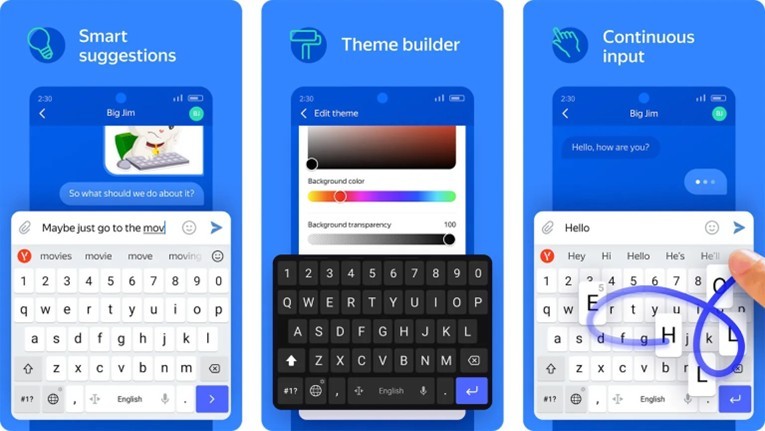
Why am I particularly proud of this project? That's because Yandex.Keyboard is an original application with a multitude of unique customization options that essentially enable users to replace their default keyboard features on their devices while securing an array of improvements to the device (including synchronizing settings between multiple devices, integrated geo and image search, painter, translator, emoji and word suggestion, smart carriage, and backspace functionality). First keyboard in the world with full-screen mode for additional verticals. TOP-1 free app at launch. A competitor to Google Keyboard and Microsoft-owned SwiftKey Keyboard (acquired by Microsoft for $250M in cash), it was the first keyboard with full-screen mode for additional verticals, with cloud-powered back-end, machine learning features, and built-in search and recommendation engines.
I led the development of this revolutionary product from inception through the launch of the final, cloud-powered back-end application, thereby exemplifying his innovative and original contributions to the field. Indeed, Yandex.Keyboard has been acclaimed as matching and competing with Google's and Microsoft's respective products by virtue of its unique customizations and original functionality. Since its launch, the Yandex.Keyboard application has achieved more than 10 million downloads on Google Play Store alone, as well as an additional millions of downloads on Apple App Store, earning high acclaim among users and IT industry experts alike.
Q: Mentorship and education have been important parts of your career. How do you approach guiding the next generation of IT professionals?
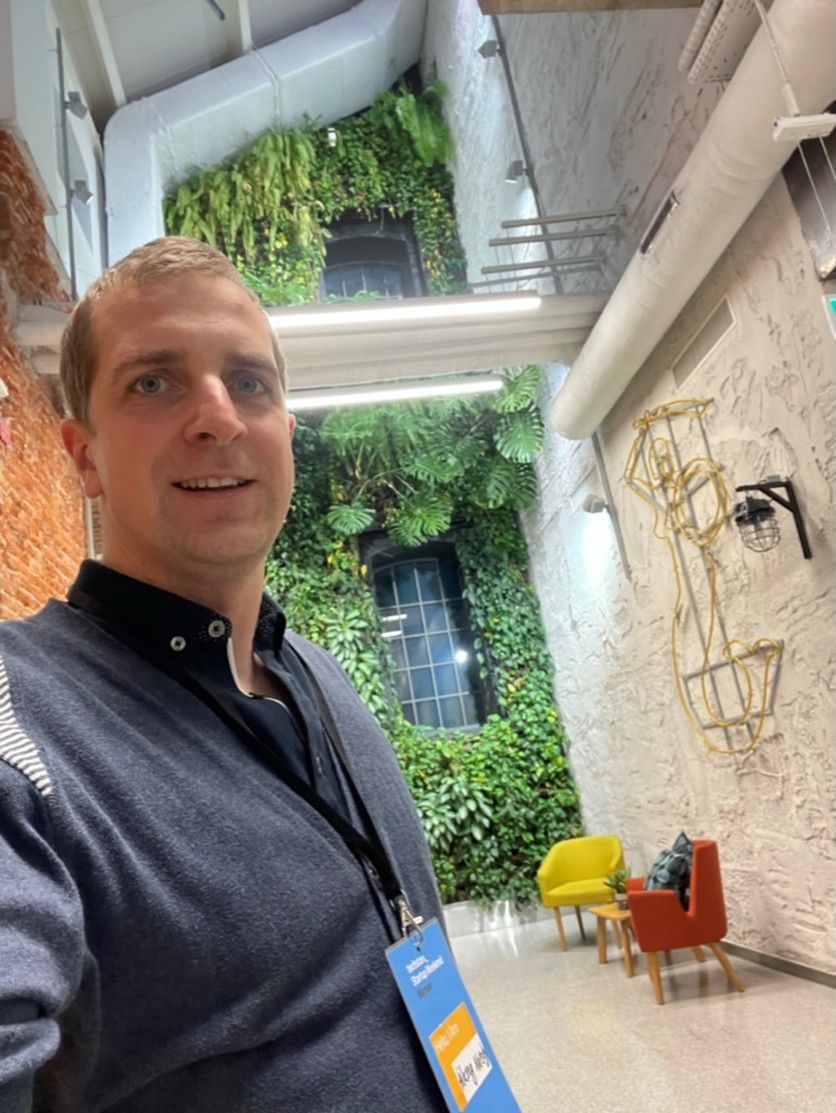
Alex Nevsky: I firmly believe in the power of mentorship and knowledge sharing. Whether through initiatives like Women in Tech or judging competitions like the Techstars Startup Weekend Hackathon, my goal is to inspire and empower the next generation. It's fulfilling to witness emerging talents pushing boundaries and redefining what's possible in technology. Mentorship provides an opportunity not only to guide others but also to learn from fresh perspectives. Seeing young professionals succeed and innovate is incredibly rewarding.
Early in my career, at a business incubator in the High-Tech Park, my project won the award for "Most Technological" by the jury's vote, which was certainly gratifying. This experience cemented my belief in fostering innovation. Encouraging others to take risks and think creatively is vital for the growth of our industry.
I've also had the privilege of being invited as an expert judge at international IT competitions. One memorable experience was at the Techstars Startup Weekend Hackathon in Warsaw, Poland. This event brings together IT professionals from around the world to show innovative tech solutions tackling global challenges.
As a mentor and judge, I used my software engineering expertise to evaluate the participants' software architecture and development plans. It was exciting to see so many fresh ideas and play a role in helping these emerging companies shape their vision for the future.
Q: Artificial intelligence has been a major focus of your career. What potential do you see in this field?
Alex Nevsky: AI's potential is boundless. One of the most promising areas is the development of AI agents and knowledge graphs. These technologies can revolutionize industries by enabling systems to understand and act on complex data. I've been exploring these concepts since 2008, and today, we're witnessing their application in real-world scenarios—from autonomous vehicles to intelligent personal assistants. The future is incredibly exciting, with AI poised to become an integral part of our daily lives. I've also studied autonomous systems extensively, including self-driving technologies. Recently, I took a course by Sebastian Thrun, a pioneer in this area, and now I'm experiencing the benefits firsthand by using autonomous taxi cars in San Francisco. This kind of technology shows how AI can enhance safety and convenience in everyday life.
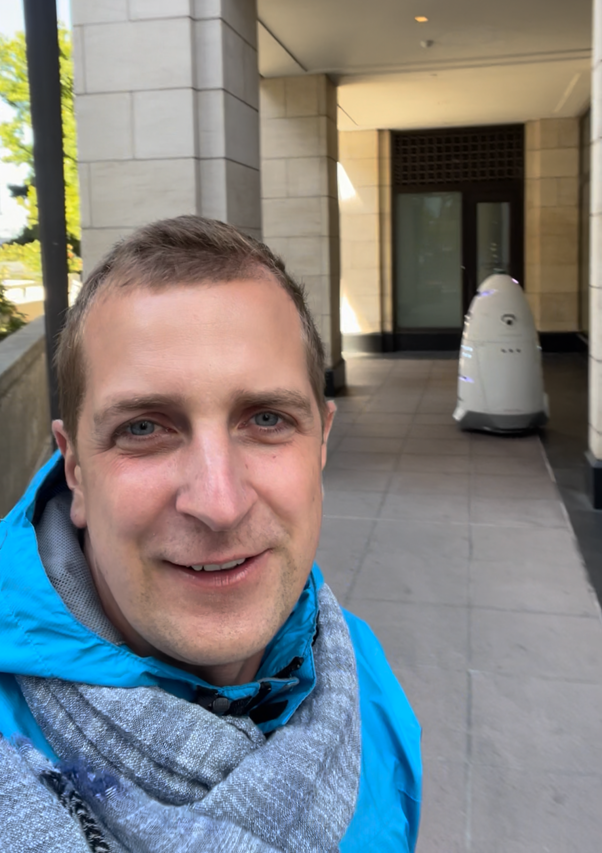
Q: For sure, you must have your own original developments. Could you tell us about some of them?
Alex Nevsky: For more than 12 years in software development and design and 5 years of focused study of artificial intelligence at university (which included the areas of graph theory, discrete mathematics, and knowledge representation using semantic networks), I have certainly accumulated quite a few.
For example, I had worked on the tasks of predicting the next token in a sentence and developed cutting-edge AI technologies more than a decade before it became mainstream.
The very first program I wrote was Intelligent Graph Visualizer. To write it, I used graph theory (knowledge representation using graphs is one of the fundamental concepts of mathematics). Despite the fact I developed this program during my studies at university, it has garnered more than 5 thousand downloads and a top rating.
Before instant messengers became widespread, I created a fast messaging system based on the Akka platform for creating correct parallel and scalable applications and the Cassandra distributed database for a large telecommunications company from Hong Kong. These developments were widely distributed, extending beyond their original application and region, and some instant messengers still use it.
I already mentioned that at Yandex, the third largest search engine in the world after Google and Bing, with more than 150 million visitors per day, I was part of the research and development team, where I played a key role in creating the Yandex Keyboard. It was a completely new look at the keyboard for a smartphone. At the moment, Yandex Keyboard has millions of downloads, it is embedded in the main Yandex application, supports the smart voice assistant Alice and YandexGPT, has found wide distribution among users, and has super positive reviews in the press, which of course makes me, as one of its creators, very happy.
Q: As AI becomes more integrated into our daily lives, it also raises questions about the influence and responsibility of major tech corporations. How do you see their role in shaping the future of technology and society?
Alex Nevsky: That's a truly fascinating topic. On one hand, by providing cloud services, no-code tools, and advancing Generative AI, these companies have made IT product creation more accessible than ever. On the other hand, they control vast amounts of data and computational power, which grants them significant influence.
A striking example is how these corporations are reshaping consumption habits. The algorithms developed within their ecosystems shape news agendas, determine which posts we see, what ads are shown to us, and more. The openness of these technologies and their societal impact remain hotly debated topics, frequently discussed by figures like Elon Musk and others.
Interestingly, many innovations within these giants are driven by small, talented R&D teams of developer-researchers. For example, Google DeepMind and OpenAI have made groundbreaking advances in artificial intelligence. The key here is to keep moving forward, as success in the tech world is never guaranteed. Continuous development and adaptation are crucial, even for the giants.
For instance, NVIDIA currently dominates the AI computing market, but startups like Groq, which are developing their own AI chips, are already emerging as competitors. Intel, having missed the trend for energy-efficient chips, has faced significant challenges. Meanwhile, Perplexity.AI is steadily carving out a share of the search market from Google.
Q: Conferences play a significant role in a technologist's journey. Could you share your thoughts on their importance?
Alex Nevsky: Conferences are incredible platforms for learning and networking. For example, not so long ago, I attended MadHats.AI in San Francisco. I had the privilege of discussing ideas with luminaries like the Davidovs, Marina Mogilko, and other founders and Venture Capitalists.
One key takeaway from such events is the emphasis on mastering fundamental concepts before building complex systems. This approach, championed by experts in the field, underscores the importance of a strong foundation in any technological pursuit. Another highlight is witnessing the power of small, agile R&D teams driving innovation even within massive corporations. MadHats.AI, for example, showed groundbreaking work being done in areas like AI-powered collaboration tools and advanced machine learning algorithms. Conferences like these inspire me to stay curious and continually strive for excellence.
Q: Finally, what advice would you give to aspiring software engineers looking to make a lasting impact?
Alex Nevsky: Stay curious and embrace lifelong learning. Technology evolves really fast, and the best engineers adapt and grow with it. Collaboration is most important; breakthroughs often emerge from teamwork. Finally, work with challenging projects—they're the ones that push you to grow both professionally and personally. The possibilities in technology are limitless, and there's never been a better time to innovate.
If I could add one more thing: don't underestimate the power of networking. Attend conferences, participate in hackathons, and engage with the tech community. These experiences not only expand your knowledge but also connect you with like-minded people who can inspire and support your journey. Technology thrives on collaboration, and the future belongs to those who embrace it.
ⓒ 2025 TECHTIMES.com All rights reserved. Do not reproduce without permission.




